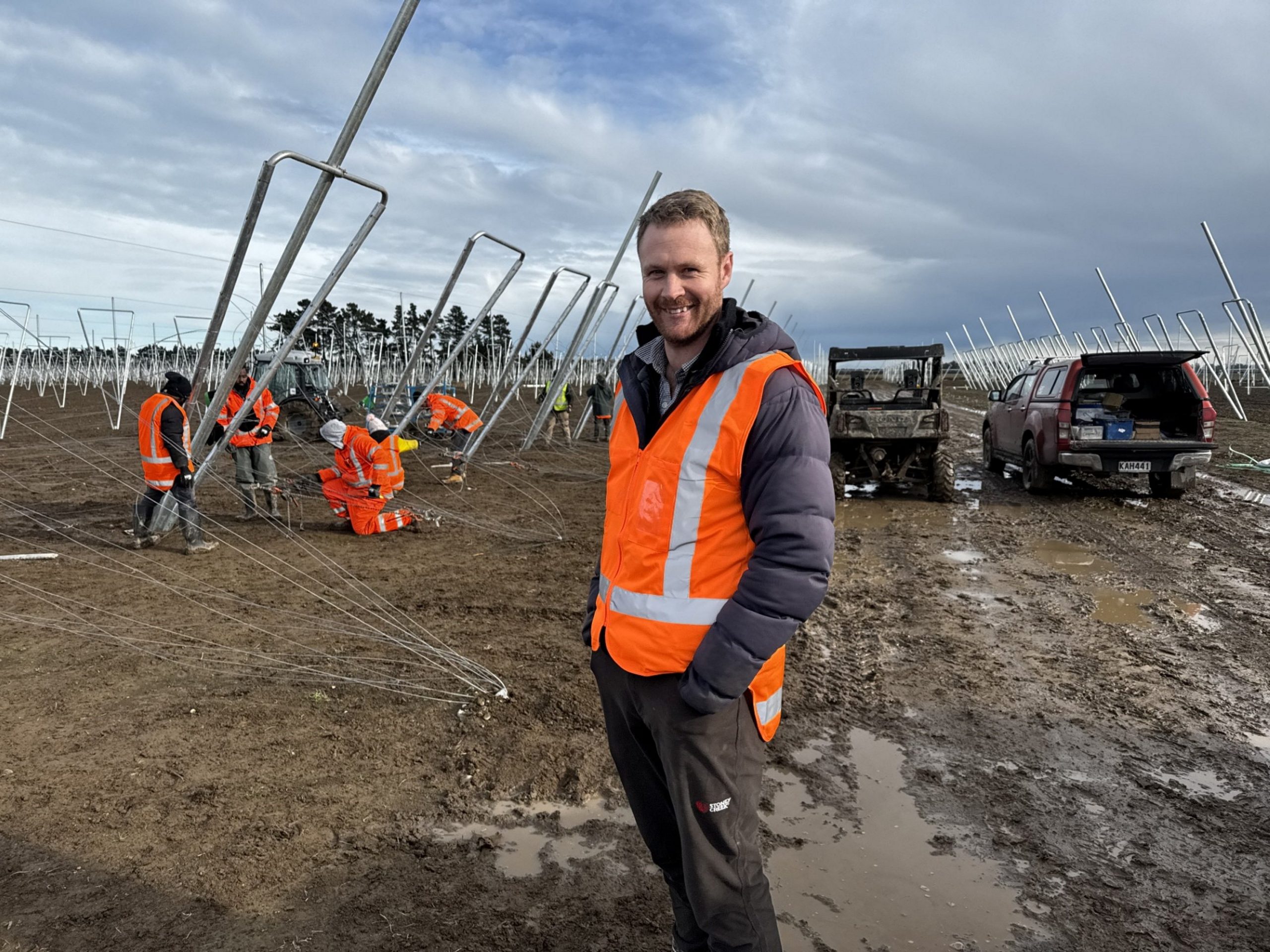
Pendarves is about to become a lot busier as 250ha of apples will be supported by infrastructure on site, including accommodation for 100 staff.
Named Tōrea Orchard and referred to colloquially by workers as ‘‘the hort resort’’, the orchard will be supported by accommodation for a further 200 seasonal staff off-site, to be built in Ashburton or Rakaia.
It’s a development that will see millions injected into the Mid Canterbury economy.
Conversion is going ahead at pace, despite recent rain and lots of mud. Up to 125 workers on site daily include permanent and overseas staff on the Recognised Seasonal Employer (RSE) scheme.
Trellis, involving steel frames and thousands of kilometres of wire, and irrigation, is being installed prior to planting of the first trees on Monday.
There will be 900,000 trees in two stages, producing 116 million premium export Rockit and Joli apples per year.
Tōrea Orchard is the first large scale Joli planting in New Zealand.

The first picking season will be 2028.
Among the first permanent workers is Matt Bentley of Ashburton. The orchard manager began in February.
From a cropping background, Bentley said he was enjoying the role, especially staff training and hiring.
‘‘People management is what I love. I think that’s what’s going to be the best for me, growing people alongside the crop.’’

Meeting The Ashburton Courier on site last week were chief operating officer Gavin Tayles, general manager pip fruit Red Martin and general manager NZ Super Fund rural portfolio Ed Tapp.
The trio said Bentley was an example of how staff did not need to have a background in horticulture for the many roles on offer.
‘‘It will be a new opportunity for people to get into the industry, and we will teach them what to do,’’ Tapp said.
Martin said Mid Canterbury’s cold winters would be perfect for producing crisp and juicy apples.

Tayles said the development would inject millions into Mid Canterbury’s economy.
In about four years, the annual spend on employment would be up to 40 times that of a dairy farm.
‘‘The development will create employment opportunities and flow-on benefits for community groups, churches and sports teams,’’ Tayles said.

The off-site accommodation would be for picking and pruning staff brought into the area, likely under the RSE scheme.
‘‘We will be looking to create synergies with other local seasonal workforces to help extend periods of work for people.’’













